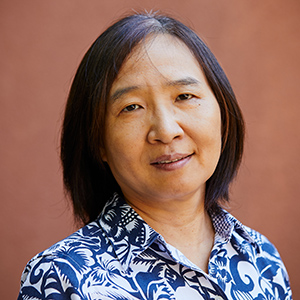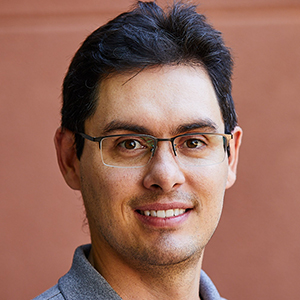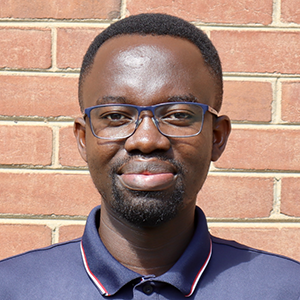
Dr. Charles N. Rotimi is the Director of the Center for Research on Genomics and Global Health (CRGGH) and the Scientific Director of the National Human Genome Research Institute, National Institutes of Health (NIH). His research activities have focused on identifying the genetic, social, and lifestyle determinants of diseases of major public health importance. He believes that studying diverse human populations is critically important in the global effort to use genomic tools to better understand human evolutionary history, and how this history may inform individual and group susceptibility/resistance to disease and variable response to drugs. To achieve these goals, Dr. Rotimi's lab has established major genetic epidemiology research projects in multiple ethnic groups in the United States, Africa (Nigeria, Ghana, Kenya, and Ethiopia) and China. The CRGGH was established to support and expand these global efforts.
Overall, Dr. Rotimi believes that scientific activities operate within the larger context of society and that the junction of society and science has to be managed so as not to trample upon the independence required for good scholarly investigation or to alienate members of societies from the scientific process. In this regard, the CRGGH is interested in how scientists document and describe the nonrandom pattern of human genetic variation and its link to disease risks in different populations. For example, how does human genetic variation inform our understanding of self and group identity and differential distribution of diseases? Investigators at the CRGGH are directly involved in these debates and hope to inform the interpretation of human genetic variation within the context of health disparities and group identity.
Dr. Rotimi received his undergraduate education in biochemistry from the University of Benin in Nigeria before immigrating to the United States for further studies. Dr. Rotimi started his education in the United States at the University of Mississippi where he obtained a Master's degree in Health Care Administration. He obtained a second Master's degree and a Doctorate in Epidemiology from the University of Alabama at Birmingham School of Public Health. Prior to coming to the NIH, Dr. Rotimi was the Director of the National Human Genome Center at Howard University. In his continued efforts to include the African community (both public and scientific), Dr. Rotimi provided leadership for the establishment of the African Society of Human Genetics and served as its president for 10 years.
Read excerpts from an interview in The Lancet, October 2010 Vol. 376, #9750):
Inequality is "one of the most outrageous aspects of society", says Charles Rotimi. That is why, earlier this year, he fulfilled "a lifetime achievement", with the launch of the Human Heredity and Health in Africa project (H3Africa), an international partnership to support population-based genetic studies on that continent. For Rotimi, understanding human genetic variation through genomics is important in global efforts to reduce health disparities, and these endeavours must "ensure all human populations are engaged in the use of genomics to solve societal problems from hunger to health".
Rotimi "has demonstrated unequivocally that 'because it had not been done before' was no excuse for not including Africa and the African diaspora in the human genome revolution", comments Georgia Dunston, founding and acting Director of the National Human Genome Center (NHGC) at Howard University, Washington, DC. Rotimi is concerned to involve Africans in genetic epidemiology, both as participants and researchers. "There is only one human race", Rotimi says. "One common characteristic of humans is that we like to travel and to share our genetic inheritance and with each such interaction we change the genetic attributes of human populations." Thus, a comprehensive understanding of population and ethnic differences requires a robust appreciation of human history: "At a fundamental level", he says, "we are all Africans beneath our skin."
What Rotimi does not study is race. "If we look at pharmacogenomics and social groups — Africans, black, white, Hispanic, and so on — it's pretty clear that at the level of drug metabolising enzymes, genes don't align themselves in a consistent manner with social labels". Members of the same family or ethnic group, for example, may carry different copies of important drug metabolising enzymes, and similar observations are true for genes important for human diseases. So, Rotimi explains, the classification of research populations "should be driven by the questions we want to answer". Continental origin is important, for example, when variations have been driven by historical environmental differences, such as climate, farming practices, and diet. Consideration of ethnic groups "gives us flexibility to account for the dynamic nature of both inherited and cultural characteristics", says Rotimi. Thus, he advocates ethnic labelling of study populations because "it captures the dynamic nature of human relationships that 'race' does not allow — 'race' connotes fixed boundaries — one pure group", he says.
You can also read Dr. Rotimi's interview in Nature Genetics as he answers questions on the role genomics plays in eliminating and addressing health disparities. (Note: the CRGGH was initially referred to as the NIH Intramural Center for Genomics and Health Disparities): Rotimi C. Straight talk with... Charles Rotimi. Interview by Charlotte Schubert. Nat Med, 14:704-705. 2008. [PubMed]
















